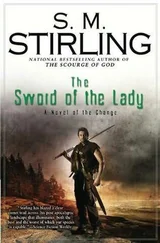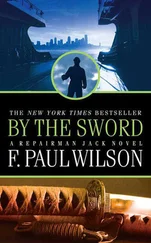Paul Christopher - The Sword of the Templars
Здесь есть возможность читать онлайн «Paul Christopher - The Sword of the Templars» весь текст электронной книги совершенно бесплатно (целиком полную версию без сокращений). В некоторых случаях можно слушать аудио, скачать через торрент в формате fb2 и присутствует краткое содержание. Жанр: Триллер, на английском языке. Описание произведения, (предисловие) а так же отзывы посетителей доступны на портале библиотеки ЛибКат.
- Название:The Sword of the Templars
- Автор:
- Жанр:
- Год:неизвестен
- ISBN:нет данных
- Рейтинг книги:3 / 5. Голосов: 1
-
Избранное:Добавить в избранное
- Отзывы:
-
Ваша оценка:
- 60
- 1
- 2
- 3
- 4
- 5
The Sword of the Templars: краткое содержание, описание и аннотация
Предлагаем к чтению аннотацию, описание, краткое содержание или предисловие (зависит от того, что написал сам автор книги «The Sword of the Templars»). Если вы не нашли необходимую информацию о книге — напишите в комментариях, мы постараемся отыскать её.
The Sword of the Templars — читать онлайн бесплатно полную книгу (весь текст) целиком
Ниже представлен текст книги, разбитый по страницам. Система сохранения места последней прочитанной страницы, позволяет с удобством читать онлайн бесплатно книгу «The Sword of the Templars», без необходимости каждый раз заново искать на чём Вы остановились. Поставьте закладку, и сможете в любой момент перейти на страницу, на которой закончили чтение.
Интервал:
Закладка:
“I could use another one of those sandwichs jambon,” said Peggy. “I’m famished.”
They locked up the house and went back to La Tourelle. It was nine o’clock, and the streets were jammed with traffic. They sat down at the same table they’d had the day before, and the same sneering waiter appeared with menus. Peggy chose an herb omelet, and Holliday settled on ham and eggs. They both had more coffee. Once again the food was wonderful and the service surly.
“We’ve got to get to La Rochelle,” said Holliday. “But if the police are onto us they’ll have the airport under surveillance and the train stations.”
“We could rent a car,” suggested Peggy.
“If they know who we are then they’ll be monitoring car rental agencies, as well.”
“There has to be some way,” said Peggy. “We can’t stay in the Allards’ place forever.”
They ate their breakfasts and sipped their coffee. The waiter didn’t seem disposed to provide refills. Peggy looked down avenue Foch at the parked cars and the slowly moving traffic.
“Did you notice Madame Allard’s business address by any chance?” Peggy said thoughtfully.
“Avenue Victor Hugo. A low number, I think. Six maybe.”
“That’s only a block from the Arc de Triomphe,” said Peggy.
“So?”
“Think about it,” said Peggy. “The Allards have a minivan. Why?”
“Because they’ve got three kids and a place in the country.”
“Almost guaranteed wherever those kids go to school is nearby. The University of Vincennes is only three or four miles away in Saint-Denis. They probably have a day-care center there for the faculty.”
“I repeat… so?”
“It means Monsieur Allard, the young professor, is probably the one who takes them to school. In the minivan. And I don’t see Dr. Allard, the woman who can afford to have her dental practice next door to the Champs-Йlysйes, taking the Metro to work with the rest of the sweaty petite bourgeoisie.”
“You think they have another car?”
“Almost certainly,” said Peggy. “Her car.”
Holliday looked down the street. There were cars parked on both sides, and there were half a dozen side streets nearby.
“How are we supposed to find it? There are hundreds of cars in the neighborhood.”
“You don’t watch enough television, Doc. I told you before-welcome to the digital age.”
They finished up their breakfasts and went back to the stone house hidden in the courtyard. Peggy found the keys exactly where you’d expect: in a little candy dish on a table beside the door. The keys had an electronic door opener on a Mercedes key ring. Ten minutes later, beeping the door opener every few feet, they found the lady dentist’s car around the corner on rue Cart.
“Now ain’t that something?” said Peggy, staring.
Parked at the curb, deep green and gleaming, was a brand-new Mercedes S Class sedan, eighty thousand dollars on four very expensive wheels. Less than an hour later, stocked up with a polystyrene cooler full of food and drink for the five-hour drive to La Rochelle, they headed out of the city, traveling southwest toward the Bay of Biscay.
They drove to Versailles, then continued south to Chartres and then Tours, navigating the length of the Loire Valley. They stopped just outside Tours for a picnic lunch by the gently flowing River Cher and then drove to Poitiers and finally to La Rochelle, arriving in the port city at three thirty in the afternoon.
The city of La Rochelle was established as a small fishing village in the year A.D. 1000, but the University of La Rochelle was so new it squeaked. Opened in 1993, the campus was ultramodern, and so were the students. The biggest faculty was Mass Communications, and the university was a correspondence school with half a dozen institutions, including SUNY in the United States. The university was located in the southern part of the city, close to the water and within a stone’s throw of Minimes, once a fishing port in its own right and now an immense marina.
Dr. Valerie Duroc’s office was in the Humanities building at the university, on the top floor. The room was austere to the extreme. Metal desk, metal bookcases, metal filing cabinets, and a framed photograph of an anonymous beach with palm trees at sunset that could have been the Seychelles or San Diego.
Duroc was a woman in her sixties who looked like a slightly less emaciated version of Lauren Bacall with a voice to match: throaty smoke over buckwheat honey. She had huge Bette Davis eyes, sculpted cheekbones and gray hair cut in a shaggy pageboy that looked as though she might have done it herself but which probably cost a fortune. She was wearing a wine red silk blouse, a pleated skirt, and Arche sling-back flats. She smoked unfiltered Gitanes Brunes; not quite as foul as Bernheim’s Boyards, but close.
They introduced themselves and dropped Maurice Bernheim’s name and then repeated their story, leaving out the mounting number of bodies, dead policemen in Paris pensions, Axel Kellerman and his father, the appropriation of the Allards’ house in Paris, and the theft of their expensive Mercedes. Edited down that way the story had at least some semblance of normalcy.
Duroc lit a cigarette with a slim little gold lighter then clicked it closed. She put the lighter down on the blue and white package of Gitanes and let two wandering plumes of smoke escape slowly from the flared nostrils of her patrician nose.
“I’m afraid the Internet has given currency to rather shoddy mythologies about men like Roger de Flor,” she began. “One can play Google like a piano keyboard and construct entire symphonies of misinformed conspiracy.” Her voice had the mid-Atlantic toneless accent of someone who has spoken English as a second language for a very long time. Holliday was willing to bet that she’d taught at an American university once upon a time.
“The truth of the matter is that Roger de Flor was nothing more than a German wine merchant. He was no Templar knight, he was no hero, and he was no warrior for God who fetched the Holy Grail from out of Jerusalem. He was a businessman, plain and simple.”
“But he did exist?”
“Certainly,” said Duroc. “That much is borne out by the records of the Port de La Rochelle. The archives of my own family bear that out, as well.”
“Your own family?” Peggy asked, intrigued.
“The famille Duroc has lived in La Rochelle since the twelfth century,” she said, a hint of pride creeping into her voice. “We are one of the oldest families in Aquitaine.” She blew out more smoke as punctuation.
Listening to her and looking at her aristocratic face Holliday could see some of the reasons for the French Revolution and the rise of a little Corsican nobody like Napolйon Bonaparte. There was a studied arrogance to the woman that went back for hundreds of years.
“Originally the name was de la Rochelle, but as the centuries passed it was shortened to Duroc,” the professor continued.
Holliday couldn’t resist.
“They were wine merchants like de Flor?”
“They were hereditary Dukes of Aquitaine,” said Valerie Duroc a little stiffly. “My ancestors include Edward Iron Arm and Richard the Lionheart.”
“Crusaders presumably.”
“Indeed. One of my ancestors was William the Pious.”
“Did they lease ships from de Flor’s merchant fleet?”
“Of course. By that time de Flor was the largest shipper of wine in France. He even had royal warrants to bring wine to England.”
“So there is a connection between the two families then.”
“In a business sense. I doubt if you could transport anything during those times without some connection to Roger de Flor.”
Duroc glanced at her watch.
“It’s almost four o’clock,” she said, smiling. “Coffee break time. Would you and Miss Blackstock care to join me?”
Читать дальшеИнтервал:
Закладка:
Похожие книги на «The Sword of the Templars»
Представляем Вашему вниманию похожие книги на «The Sword of the Templars» списком для выбора. Мы отобрали схожую по названию и смыслу литературу в надежде предоставить читателям больше вариантов отыскать новые, интересные, ещё непрочитанные произведения.
Обсуждение, отзывы о книге «The Sword of the Templars» и просто собственные мнения читателей. Оставьте ваши комментарии, напишите, что Вы думаете о произведении, его смысле или главных героях. Укажите что конкретно понравилось, а что нет, и почему Вы так считаете.











